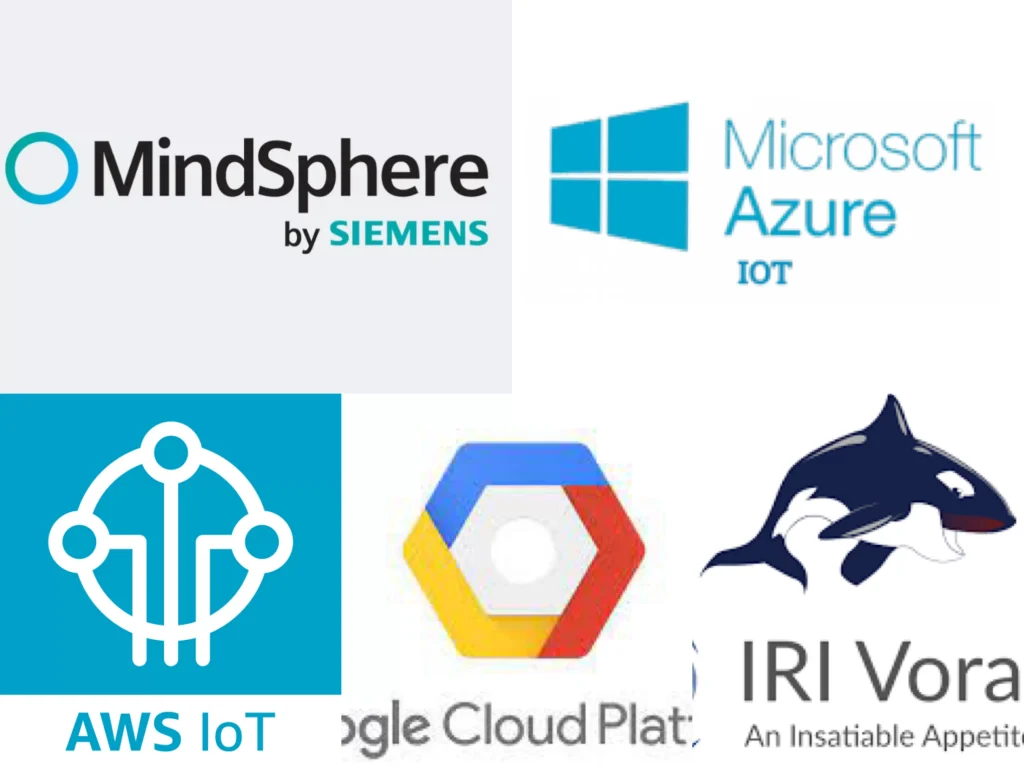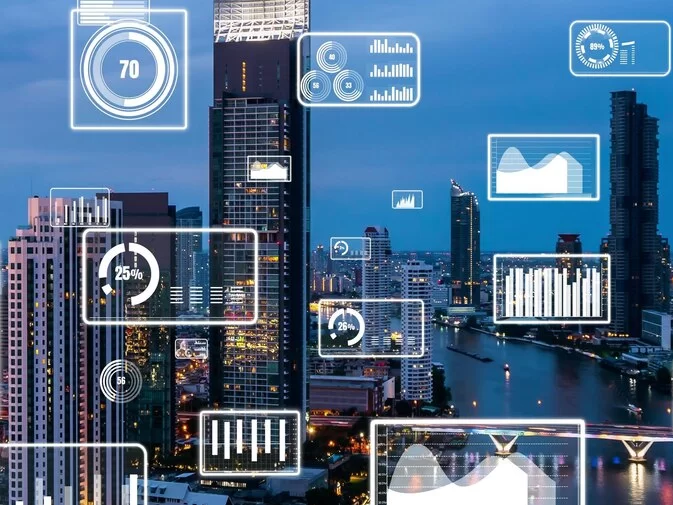- An Internet of Things (IoT) system is a set of software, either on-site or in the cloud, that allows businesses to run applications for monitoring, managing, and controlling different endpoints. The platform supports both basic and advanced IoT solutions and digital business operations, typically with robust infrastructure capabilities.
- Businesses have been adopting IoT technologies more actively, so the need for high-quality IoT platforms is also increasing.
- Cloud computing is the predominant technology of our time, empowering numerous businesses and technological sectors. The junction of the Internet of Things and cloud services unleashes the potential of IoT devices, opening new horizons for companies and customers alike.
What is an IoT platform? Generally, it is middleware that manages all the interactions between users’ applications and remote devices. In other words, IoT platforms perform various operations in terms of management and automation of connected devices.
In this article, we discuss the 5 most popular Internet of Things platforms for 2024.
IoT technology overview
The concept of the Internet of Things entails the establishment of distributed networks comprising numerous physical objects equipped with embedded software, sensors, and connectivity options. These objects collect data, sharing it with each other and with a central platform via the Internet.
The global IoT market is gaining momentum. According to MarketsandMarkets forecasts, the global Internet of Things market size is expected to reach USD 650.5 billion by 2026. We can’t underestimate the Internet of Things impact on enterprise connectivity and exponential revenue growth. The Business Insider claims that by 2027, the IoT market will grow to over $2.4 trillion annually.
Also read: How does 5G technology enhance the Internet of things (IoT)?
Also read: Qualcomm unveils AI-Ready IoT platform at Embedded World 2024
IoT platform architecture
The IoT system consists of hardware (devices, sensors, beacons, etc.), connectivity protocols (in other words IoT networks) that transmit data to and from middleware (IoT cloud platform), and application(s). The IoT platform acts as a mediator between the hardware and application layers. The main components, or better to say, functions of an IoT cloud platform are data storage and processing, connectivity and device management, analytics, and data visualization.
Based on such IoT Cloud platforms, IoT solutions can be created that collect and analyze vast amounts of data, such as this IoT app that helps to stay fit.
The Importance of IoT Cloud Services
Cloud computing is the predominant technology of our time, empowering numerous businesses and technological sectors. The junction of the Internet of Things and cloud services unleashes the potential of IoT devices, opening new horizons for companies and customers alike.
Firstly, the cloud offers unlimited scalability, a critical feature as the demand for handling and storing Big Data from thousands of devices continues to grow. Secondly, the cloud facilitates remote development and management, which is extremely convenient when connected assets are scattered across cities and countries.
Three types of cloud services are available for Internet of Things development: Infrastructure-as-a-Service (IaaS), Platform-as-a-Service (PaaS), and Software-as-a-Service (SaaS).
Typically, Internet of Things cloud platforms are end-to-end solutions that combine capabilities such as app development, device management, connectivity management, data acquisition, and storage, as well as data analysis and visualization.
Also read: Who invented cloud computing?

Top 5 popular IoT platforms in 2024
There are multiple IoT cloud platforms available; we will go through the main ones, the leaders in the market. Which one to choose? It depends on your requirements and the platform’s advantages and disadvantages. Welcome to the IoT cloud platforms comparison.
1. Microsoft Azure IoT
A number of tools for device management, data analytics, and smooth integration with Azure’s cloud services are included in Microsoft’s Azure IoT suite. One notable cloud-based platform for creating commercial IoT applications is Microsoft’s Azure IoT. For companies that have already purchased Azure and Microsoft’s software development tools, it is especially beneficial. Azure IoT provides a smooth interface between cloud and edge IoT devices, enabling opportunities to increase process efficiency and extract meaningful insights from platform data.
2. Google Cloud IoT
Using Google Cloud’s strong infrastructure, the IoT platform makes it easier to connect, manage, and analyze IoT devices. It makes sense that Google would offer an IoT platform since Amazon and Microsoft already do. With the help of its well-known AI and machine learning algorithms, Google offers businesses edge messaging services, device management, and analytics through its Cloud IoT Core. Notably, Google prefers to operate in the background while offering the vast array of cloud services that power these IoT systems, working with a variety of partners in the IoT space for solution implementation.
3. IRI Voracity
It is the ideal choice if you require an all-in-one data management platform that permits IoT data control throughout all phases of your business processes. This platform processes Big Data using two engines: Hadoop and IRI CoSort. Data from different sources and formats, including Unix, Linux, or Windows file systems, ISAM, MongoDB, LDIF, HIVE, JSON, S3, PostgreSQL, MQTT, Kafka, and more, can be found, governed, integrated, analyzed, transformed, and migrated with it.
4. AWS IoT Core
One of the best cloud service choices for businesses is still Amazon’s AWS. It follows that their AWS IoT Core’s reputation as a top IoT platform is not surprising. IoT Core’s massive scalability is highlighted by its innate capacity to route trillions of messages and connect billions of IoT devices. It is still a viable option that businesses that currently use AWS should investigate.
5. Siemens MindSphere
This platform, which specializes in industrial Internet of things, offers tools for connectivity, data analytics, and the creation of digital twins for industrial and manufacturing applications. IoT endpoints with intelligence, apps that transform data into insights that can be put to use, advanced statistics and artificial intelligence, and hardware and software connectivity with a variety of industrial assets. Additionally, it promotes connectivity between various use cases and a variety of industrial properties produced by Siemens and other businesses using both software and hardware components.

